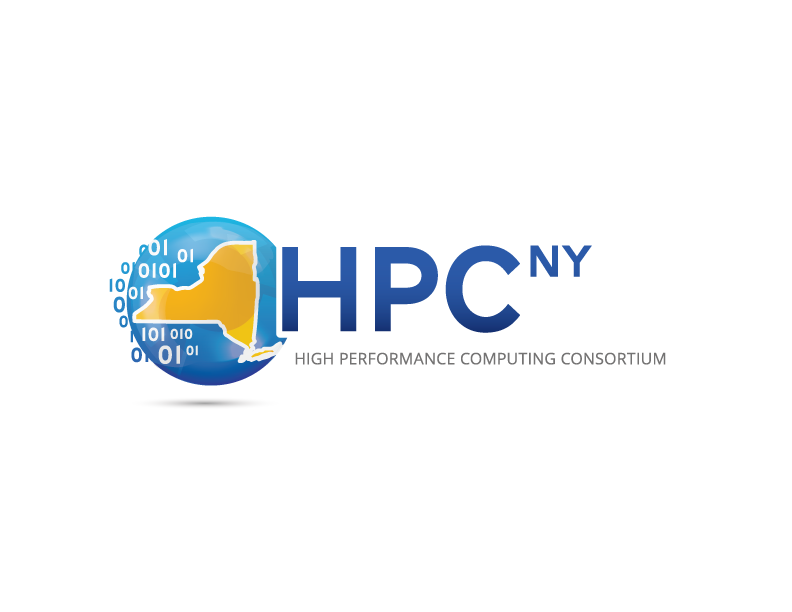 The New York State High Performance Computing Consortium (HPC2) is a three-year NYSTAR funded program that brings together computing expertise from the IACS at Stony Brook University, Rensselaer Polytechnic Institute, the Center for Computational Research at SUNY Buffalo, the Mount Sinai School of Medicine, and Marist College. The mission of the consortium is to engage New York State companies on the use of advanced computing and data analytics for improving productivity, developing new products, and fostering innovation to provide them with a competitive advantage in growing their businesses. A core HPC2 team has been established at Stony Brook University including the PI Dr. Robert Harrison, the Program Director Dr. Jason Trelewicz, and five additional faculty members in the College of Engineering and Applied Sciences. The high-performance computational resources and data capabilities of IACS and Brookhaven National Laboratory are being leveraged by the team to address problem-solving and design needs communicated by their industrial partners. The projects summarized below were selected to provide a diversified computing portfolio for the HPC2 program that incorporate a range of coding and simulation techniques including code translation technologies, molecular dynamics simulations, computational fluid dynamics, and solid modeling.
The New York State High Performance Computing Consortium (HPC2) is a three-year NYSTAR funded program that brings together computing expertise from the IACS at Stony Brook University, Rensselaer Polytechnic Institute, the Center for Computational Research at SUNY Buffalo, the Mount Sinai School of Medicine, and Marist College. The mission of the consortium is to engage New York State companies on the use of advanced computing and data analytics for improving productivity, developing new products, and fostering innovation to provide them with a competitive advantage in growing their businesses. A core HPC2 team has been established at Stony Brook University including the PI Dr. Robert Harrison, the Program Director Dr. Jason Trelewicz, and five additional faculty members in the College of Engineering and Applied Sciences. The high-performance computational resources and data capabilities of IACS and Brookhaven National Laboratory are being leveraged by the team to address problem-solving and design needs communicated by their industrial partners. The projects summarized below were selected to provide a diversified computing portfolio for the HPC2 program that incorporate a range of coding and simulation techniques including code translation technologies, molecular dynamics simulations, computational fluid dynamics, and solid modeling.
 |
Source-to-Source Translator for High-Performance Computing with R Language Project Lead: Xiangmin Jiao, Department of Applied Mathematics and Statistics The team at Stony Brook University, led by Professor Xiangmin Jiao in the Department of Applied Mathematics and Statistics, is working with ParaLab Computing, LLC on the development of a new source-to-source technology to translate user-written R codes into high-performance C++ codes with a myriad of commercial applications in the insurance, advertising, and pharmaceutical industries. |
 |
Partial Reformation of Mixed Fuels for Combustion in Heavy-duty Engines – A Modeling Study Project Lead: Sotirios Mamalis, Department of Mechanical Engineering Heavy-duty diesel engines are often operated using fuels of mixed properties (thermodynamic and chemical) that have variable hydrocarbon as well as CO2 content, resulting in inefficient combustion and non-robust engine operation. To address these and other issues, the team in the Department of Mechanical Engineering led by Professor Sotirios Mamalis and partnered with Innoveering, LLC is studying how to enable decomposition (a.k.a., reformation) of larger hydrocarbon molecules into smaller, more reactive species. Computational fluid dynamics simulations are being employed to perform chemistry and heat transfer calculations to assess combustion efficiency and predict emission formations with direct application to diesel engines. |
 |
Molecular Dynamics Study of Sulfur Crystals for Sustainable Concrete Project Lead: Juhyuk Moon, Department of Civil Engineering Concrete is the most widely used manufacturing material, with global concrete production exceeding 20 billion tons each year, but the energy consumed results in 5~7% of global CO2 emissions. The team in the Civil Engineering Department, led by Professor Juhyuk Moon, is working with Green SulfCrete, LLC on the development and commercialization of new green concrete based on sulfur, denoted “SulfCrete,” which is produced by the recycling of industrial by-product materials of sulfur, fly ash, and catalytic cracking oil. Molecular dynamics simulations are being used to understand the different thermal behavior of sulfur polymorphs using the large-scale atomic/molecular massively parallel simulator (LAMMPS) platform. |
| |
Computational Modeling of the Thermomechanical Properties of the Regenerator in a Thermally Driven Heat Pump
Project Lead: T. A. Venkatesh, Department of Materials Science and Engineering, and Maen Alkhader, Department of Mechanical Engineering ThermoLift is developing a disruptive and transformational thermally-driven heat pump that provides heating, cooling, and hot water all in one device. Materials selection issues for various components such as the hot end, cold end, heat exchangers, and regenerators play a crucial role in determining the efficiency of the heat pump. The team at Stony Brook University, including Professors T.A. Venkatesh and Maen Alkhader, are developing finite element based computational models for controlling thermal and mechanical coupling and predicting thermal history. |
| Enabling Stable Nanocrystalline Tungsten Alloys as Plasma Facing Materials for Fusion Reactors
Project Lead: Jason Trelewicz, Department of Materials Science and Engineering Plasma-facing components for reactor scale fusion devices require materials to operate under far-from-equilibrium conditions of extreme temperature, radiation, and stress. The team in the Department of Materials Science and Engineering, under the direction of Professor Jason Trelewicz, is employing predictive thermodynamic modeling and atomistic simulations to study nanograin stability, radiation tolerance, and mechanical behavior of nanostructured tungsten alloys. |